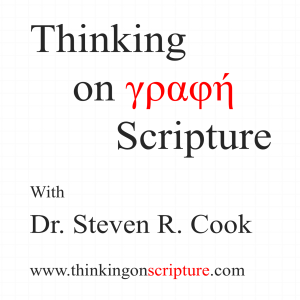
Sunday Nov 17, 2019
Zephaniah 2:4-15
Having pronounced His judgment upon Judah for their sins (Zep 1:1-2:3), God now turns His focus upon the surrounding Gentiles nations ((Zep 2:4-15). He opens with a pronouncement of judgment upon four Philistine cities which lie west of Judah, saying, “Gaza will be abandoned and Ashkelon a desolation; Ashdod will be driven out at noon and Ekron will be uprooted” (Zep 2:4). The Philistines had a longstanding hostility toward Israel (Gen 20-21, 26), and had even taken some Judahites captive and sold them into slavery (Amo 1:6-8). To these people and cities, God declared retributive justice, saying, “The word of the LORD is against you, O Canaan, land of the Philistines; and I will destroy you so that there will be no inhabitant” (Zep 2:5). But God pronounces remunerative justice toward Israel, saying, “So the seacoast will be pastures, with caves for shepherds and folds for flocks. And the coast will be for the remnant of the house of Judah, they will pasture on it. In the houses of Ashkelon they will lie down at evening; for the LORD their God will care for them and restore their fortune” (Zep 2:6-7). Next, God addressed the hostility and taunting of Moab and Ammon (Zep 2:8), who were the descendants of Lot’s incestuous relationship with his two daughters (Gen 19:30-38). The Moabites and Ammonites were historically hostile to Israel (Isa 16:6; Jer 48:26, 29; Ezek 25:5-7), and now they would be judged. Because of their longstanding sins, God pronounced retributive justice, saying, “As I live, ‘declares the LORD of hosts, the God of Israel,’ surely Moab will be like Sodom and the sons of Ammon like Gomorrah—a place possessed by nettles and salt pits, and a perpetual desolation’” (Zep 2:9a). Again, God would dispense remunerative justice to His people, saying, “The remnant of My people will plunder them and the remainder of My nation will inherit them” (Zep 2:9b). The Moabites and Ammonites got what they deserved, as God states, “This they will have in return for their pride, because they have taunted and become arrogant against the people of the LORD of hosts. The LORD will be terrifying to them” (Zep 2:10-11a). The Ammonites and Moabites, whose idols customarily received sacrifices, would have nothing to bring them, for the Lord “will starve all the gods of the earth; and all the coastlands of the nations will bow down to Him, everyone from his own place” (Zep 2:11b). Very briefly, God speaks to Ethiopians, saying “You also, O Ethiopians, will be slain by My sword” (Zep 2:12). No reason is given for God’s judgment, but it is likely they acted similarly to the other Gentile nations that were being judged. The final judgment came against the Assyrians in the north, in which God “will stretch out His hand against the north and destroy Assyria, and He will make Nineveh a desolation, parched like the wilderness” (Zep 2:13). Nineveh was destroyed in 612 BC by an alliance between the Babylonians and Medes under the leadership of Nabopolassar and Cyaxeres. The Assyrians were removed and the land became inhabited by wild animals (Zep 2:14). The Assyrians thought they were secure in their fortified cities, and they became proud. But God would destroy them, and they would become “a resting place for beasts! Everyone who passes by her will hiss and wave his hand in contempt” (Zep 2:15).
Though God gave His written law to Israel alone (Psa 147:19-20), His moral laws are written upon the hearts of all people (Rom 2:14-15), and He holds them accountable for their behavior. God is Judge of all people (Gen 18:25; Psa 22:28; 103:19), and He deals out retribution to those who disobey Him and attack His people (Deu 32:35; 2 Thess 1:6-8), and rewards those who are faithful (Psa 18:20; 58:11; 1 Sam. 26:23).
No comments yet. Be the first to say something!